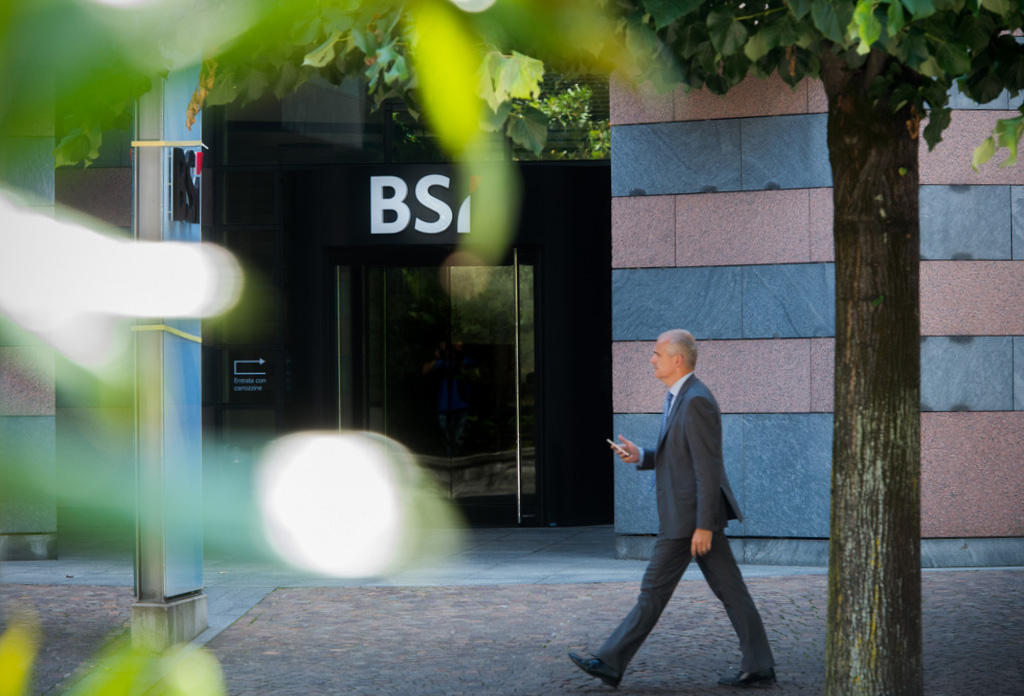Solid marks for anti-money laundering efforts

Switzerland’s anti-money laundering and counter-terrorist financing regime is overall technically robust and has achieved good results, according to an assessment by the Financial Action Task Force (FATF). However, it would still benefit from some improvements in order to be fully effective.
“Since its previous FATF assessment in 2005, Switzerland has strengthened its AML/CFT (anti-money laundering and counter-terrorist financing) regime,” the Paris-based intergovernmental body said in a statement on Wednesday.
“These efforts rest on a clear political will to promote the integrity of its financial centre. In line with this, legal reforms have taken place in order to meet the requirements of the FATF recommendation, and to address the significant money laundering risks that Switzerland faces.”
On the operational side, the reportExternal link said law enforcement authorities had demonstrated the effectiveness of their investigative methods and of the mutual legal assistance they provide in the context of international money laundering cases.
The authorities have, for example, in recent times collected financial information and seized assets for their international counterparts in a number of prominent cases, including investigations into Malaysian state fund 1MDB, global soccer body FIFA and Brazilian state-run oil company Petrobras.
Sanctions
The FATFExternal link noted that Swiss supervisory authorities continuously monitored financial institutions and regulated non-financial entities following a risk-based approach.
Nevertheless, it encouraged the authorities to strengthen their control with regard to the obligation to report suspicious transactions, in particular for financial institutions.
“Furthermore, the sanctions applied for failure to comply with AML/CFT requirements, both to natural and legal persons, must be commensurate to the seriousness of the misconduct identified and should prompt other institutions to reconsider their policies when necessary,” it said.
Switzerland, a member of FATF since 1990, demonstrates a strong commitment to mutual legal assistance, the assessors added. “It should continue to pursue its efforts on all other forms of international cooperation, including on the supervision of financial groups, given the key role of the Swiss financial centre.”
Swiss authorities have recently adopted measures to address some of these concerns. These developments are welcome and Swiss authorities are encouraged to ensure an effective implementation of these new legal provisions.
Reactions
“Overall Switzerland’s results can be considered good even when compared to the other countries which have already been reviewed,” said the Swiss finance ministry in a statement.External link
It recognised, however, that Switzerland had to pursue its efforts in combating money laundering and terrorist financing, as pointed out in the report’s recommendations.
Switzerland will be subject to a follow-up process by the FATF, as is normal practice, the ministry noted. The Swiss authorities will analyse the recommendations of the report in the context of the interdepartmental coordinating group on combating money laundering and the financing of terrorism (CGMF) and then submit a proposal to the cabinet in 2017.
For its part, the Swiss Bankers Association (SBA) saidExternal link that the banks had taken note of the overall good marks “with satisfaction”.
“The FATF has thus recognised the efforts of the financial centre to resolutely implement international standards,” it said.
But it noted that for any potential adjustments to Swiss legislation related to the points of criticism, “the SBA expects a good sense of proportion to be applied and that any form of ‘Swiss finish’ [going beyond international standards] be dispensed with”.
Timely reporting
Earlier in the year, the head of Switzerland’s financial regulatory body, FINMAExternal link, said Switzerland was dealing with a number of money laundering cases that look like they involve “blatant and massive corruption”.
Mark Branson said that although money laundering was a global problem, Switzerland was particularly susceptible. As the largest financial centre in the world that has built a business around managing wealth for private clients, Switzerland was “naturally exposed to a greater risk” in terms of money laundering, he said.
In 2015, there were 29 institutions in Switzerland that were investigated on suspicion of breaking anti-money laundering rules, though not all led to the regulators taking action.
In terms of tackling the issue, Branson said it was not new regulation that was needed, but existing rules had to be “applied systematically and consistently”.
One area that banks could improve on is timely reporting of suspicious activity, Branson added. Too often, banks wait until problems become public before alerting the authorities, he said.
“Banks must be readier to file a report as soon as they have concrete suspicions and not wait until the media has taken up the scandal,” he said.
FATF
The Financial Action Task Force (FATF) is an inter-governmental body established in 1989 by the Ministers of its Member jurisdictions.
The objectives of the FATF are to set standards and promote effective implementation of legal, regulatory and operational measures for combating money laundering, terrorist financing and other related threats to the integrity of the international financial system.
The FATF is therefore a “policy-making body” which works to generate the necessary political will to bring about national legislative and regulatory reforms in these areas.
(Source: FATF)

In compliance with the JTI standards
More: SWI swissinfo.ch certified by the Journalism Trust Initiative












You can find an overview of ongoing debates with our journalists here . Please join us!
If you want to start a conversation about a topic raised in this article or want to report factual errors, email us at english@swissinfo.ch.